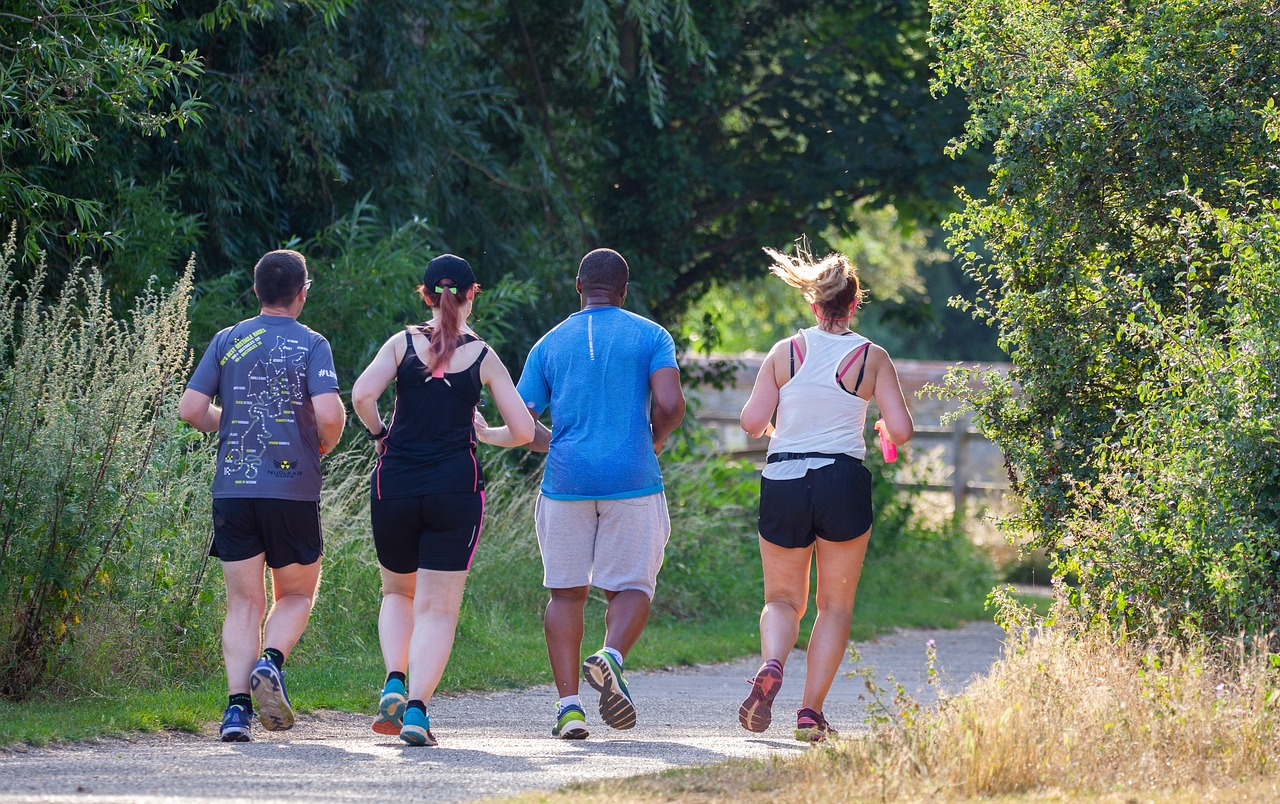Table of Contents
Keto Diet for Runners: Boosting Performance and Endurance
For runners, the keto diet is an intriguing concept that promises a shift in how you fuel your body and perform. The keto diet, known for its high-fat, low-carb approach, aims to switch your body’s energy source from carbs to fats. While this diet might not be the perfect fit for every runner, there’s potential for it to boost endurance by utilizing fat as a primary energy source.

Transitioning to a keto diet requires patience and strategy, especially for athletes who rely heavily on carbohydrates for quick energy. The adaptation phase can impact your running routine, but with careful adjustments in your nutrition and training, it can become a valuable part of your running lifestyle.
Understanding how the keto diet can affect your performance as a runner is crucial. It’s important to recognize the potential benefits, like increased fat utilization, while also considering any effects on shorter races where quick energy from carbohydrates is key. Using personalized strategies, you can navigate this diet to suit your running goals.
Key Takeaways
- The keto diet shifts fuel from carbs to fats.
- Transitioning affects performance and requires planning.
- Benefits include improved fat utilization for endurance.
Understanding the Keto Diet

The ketogenic diet is all about shifting your body from burning carbohydrates to burning fats. This change leads to a metabolic state called ketosis, which can be beneficial for runners looking to enhance their endurance and fat-burning capability.
Basics of Ketosis and Macronutrients
When you follow a keto diet, your main fuel source becomes fat instead of carbs. Your body enters ketosis, a state where it produces ketones, which are byproducts of fat breakdown. This is a major shift from the usual reliance on glucose from carbohydrates.
In a typical keto diet, about 70% of your calories come from fats, around 20% from protein, and the rest from carbs. It’s low-carb, so you cut down on foods like bread and pasta. Instead, you fill up on high-fat sources like avocados, nuts, and oils.
This diet encourages fat adaptation, where your body becomes efficient at burning fat for energy. Protein intake is moderate to maintain muscle. Understanding these macronutrient changes is crucial for adapting to a keto lifestyle and sustaining energy levels while running.
Difference Between Keto and Other Diets
Keto is different from other diets because it flips the usual macronutrient balance. Traditional diets for athletes often focus on high carbs—like 40-65% of calories from carbs to fuel physical activity. In contrast, the keto diet limits carbs to less than 10% of daily intake, a drastic change that can affect running performance.
Fat becomes the primary energy source, unlike other diets where carbs are key. This can improve endurance by reducing dependency on stored glycogen. However, transitioning to keto might initially feel challenging as your body adapts.
Other diets might not emphasize ketosis, but keto’s unique focus on creating and utilizing ketones sets it apart, offering potential benefits for long-distance running and endurance.
Keto Diet Benefits for Runners
Adopting a keto diet might offer runners unique advantages. These can include using fat for energy instead of carbs and possibly improving body composition through weight loss.
Enhanced Fat Oxidation and Energy Levels
On a keto diet, your body becomes more fat-adapted, meaning it can use fat as a primary energy source. This is particularly beneficial for endurance activities like long-distance running because fat stores are more plentiful compared to carbs. As a result, you might experience more stable energy levels, avoiding the usual spikes and crashes associated with carb-heavy diets.
Research suggests that this can enhance endurance performance by optimizing fat oxidation. However, it’s important to remember that not all runners respond the same way, and the transition to this diet can take time.
Improved Body Composition and Weight Loss
If weight loss is a goal, the keto diet can be effective in helping you lose weight and change your body composition. By reducing carbohydrate intake, your body begins to burn stored fat, which can lead to an overall leaner physique. This can be a plus for runners aiming to be lighter and faster on their feet.
A lower weight might improve your running efficiency, making it easier to maintain speed and endurance over longer distances. Keep in mind that change varies from person to person and depends on how consistently you stick to the diet.
The Transition Phase to Keto
Switching to the keto diet can be challenging for runners. It’s important to understand some of the hurdles you might face, like keto flu and adapting to a low-carb lifestyle, to help your body adjust and improve running performance.
What is Keto-Flu?
When you first start the keto diet, you might experience something known as the keto-flu. This isn’t a real flu, but it can feel like one with symptoms like fatigue, headaches, and cravings. Your body is used to burning carbs for energy, and shifting to fat as the main fuel source can be tough.
You might feel tired and sluggish as your body adjusts to this new way of getting energy. To ease these symptoms, stay hydrated and make sure you’re getting enough electrolytes. Increasing your salt, magnesium, and potassium intake can help combat fatigue and other symptoms of keto-flu.
Listening to your body and not pushing too hard during workouts can also be a smart move. Go easy on yourself while your body finds its balance.
Adapting to Keto as a Runner
Adapting to keto as a runner can take time. This process, often called keto-adaptation, involves your body learning to efficiently burn fat for fuel. It might take several weeks, so patience is key. During this time, your running performance may drop as your body gets used to the new energy source.
To support your transition, focus on maintaining a balanced intake of fats and proteins. Adjust your macros and daily meals to ensure you’re giving your body what it needs.
Remember that everyone’s adaptation period can vary. Some runners, like Zach Bitter, have found success by cycling between ketosis and low-carb diets. Listen to how your body responds and adjust your routine as needed.
Nutritional Strategies for Keto Runners
When you’re a runner on a keto diet, managing hydration and muscle maintenance becomes critical. Balancing electrolytes and getting enough protein are key areas to focus on.
Electrolyte Balance and Hydration
On a keto diet, electrolyte balance is super important. Since you eat fewer carbs, your body might lose sodium and other electrolytes faster. A good way to keep these in check is by adding a bit more salt to your food and including foods rich in potassium and magnesium like avocados and spinach.
Hydration also deserves attention. With lower carb intake, your body might not retain water as effectively. Make it a habit to drink water regularly, and consider a sports drink with added electrolytes for long runs. This keeps your energy up and helps prevent cramping.
Protein Intake for Muscle Maintenance
While focusing on high-fat foods, don’t forget about protein. It’s vital for keeping your muscles strong, especially when you’re running regularly. Aim for a protein intake that supports muscle repair without kicking you out of ketosis.
Lean sources like chicken, fish, and eggs are excellent choices. Spreading out protein throughout your meals can be more beneficial for muscle maintenance. Keep in mind that while fats are the primary energy source on keto, maintaining proper protein intake is key to avoiding muscle loss.
Training Adaptations for Keto Endurance Runners
When you’re a runner on a keto diet, your training might look a bit different. You need to juggle high-intensity and long-distance workouts while keeping an eye on your glycogen stores and managing fatigue.
Balancing High-Intensity vs Long-Distance Training
On a keto diet, your body becomes efficient at burning fat, which can be a game-changer for endurance runners. For long-distance sessions, this increased fat-burning capacity helps you go the distance without hitting that dreaded “wall.”
However, for high-intensity exercise, you may notice a dip in performance at first. This happens because quick energy from carbs is limited. With adaptation, you might notice improved stamina. Training research shows that keto-adapted runners often have higher fat oxidation rates, which can boost performance in endurance events like marathons and ultramarathons.
Here’s a quick tip: Gradually increase your training intensity while on a keto diet. Your body needs time to adapt!
Glycogen Stores and Fatigue Management
Managing your glycogen stores is crucial when you’re on the keto train. Since your carb intake is low, you need to carefully manage energy levels to prevent bonking or fatigue during long runs.
Eating enough protein and good fats can help maintain energy levels. Some runners also find it useful to have strategic carb intake, like before a race, to maximize performance. This approach can help balance energy use during high endurance exercise.
Be mindful of your body’s signals. If you feel depleted, it might be time to tweak your diet or training plan. Finding the right balance can help keep you on track and build endurance efficiently.
Performance Considerations
Running on a keto diet can bring about unique challenges and benefits for runners. It’s crucial to balance maintaining your high performance with addressing potential drawbacks to get the most out of your running routine.
Maintaining High Performance
When you’re following a keto diet, your body relies on fats instead of carbs for energy. This can be beneficial for endurance runners as it may improve fat loss and heart health. The switch to using fat for fuel can lead to stable energy levels during long runs.
To support this, focus on sports nutrition that complements a low-carb lifestyle. Incorporate foods rich in healthy fats like avocados and nuts. Don’t forget about electrolytes to avoid losing out on key minerals you need for running performance.
Being in ketosis might not boost high-intensity workouts, but it can be a solid choice for steady-paced activities. Maintain your VO2 max by adjusting your workout routine to include plenty of aerobic exercises. This helps in preserving endurance and running speed over long distances.
Potential Drawbacks and How to Mitigate Them
One potential problem is diminished performance when first starting the keto diet. Your body needs time to adapt, and during this phase, you might feel sluggish. Over time, your athletic performance should stabilize as fat becomes your primary energy source.
If you’re noticing issues such as decreased running speed or stamina, consider gradually transitioning into the keto diet. This gives your body a chance to adapt without a sudden drop in performance.
Another concern is the possible impact on high-intensity workouts. You might find these workouts challenging due to lower glycogen stores. To offset this, you might try targeted carb intake around your workouts to improve energy availability.
Overall, careful planning and monitoring how your body responds can help mitigate these drawbacks while you get accustomed to this new way of fueling your runs.
Supplementation and Keto Running
When you’re running on a keto diet, supplements can be a big help in maintaining energy levels and boosting your endurance performance. Key supplements like exogenous ketones can be crucial in providing energy and tackling challenges like the keto flu.
The Role of Exogenous Ketones
Exogenous ketones are a game-changer for some keto runners. They help your body use fat for energy more efficiently. This is crucial because carbs, the usual energy source, are limited on a keto diet. By taking exogenous ketones, you might find an increase in your energy levels during a run.
These supplements can also help you adjust more quickly to this low-carb lifestyle, reducing symptoms of keto flu. That’s the period when your body is switching to using fat as its primary energy source. If you’re struggling with fatigue, adding exogenous ketones might just give you the boost you need to keep going.
Other Supplements for Endurance
Beyond exogenous ketones, there are other supplements to consider. Electrolytes, like sodium, potassium, and magnesium, are essential. On a keto diet, your body loses more of these minerals, which can affect your endurance. Keeping these levels balanced can help maintain your energy and prevent cramps.
Additionally, sports nutrition products tailored for keto athletes offer a range of benefits. Some runners also use medium-chain triglycerides (MCTs) to get quick access to fat energy. Products like MCT oil or powder can be easily added to your pre-run routine to support prolonged activity.
Practical Tips for Long-Term Success
Making the keto diet work for you as a runner involves careful planning and listening to your body. This approach will help you maintain energy and avoid issues like brain fog while balancing your carbohydrate intake.
Daily Meal Planning
When planning your meals, focus on high-fat, low-carb options to keep your body in the right metabolic state. Start with breakfast containing eggs cooked in butter or coconut oil, which provides a good fat base for the day. Adding avocado is a smart choice.
For lunch, think of a large salad topped with olive oil and fatty fish like salmon. Nuts and seeds, such as almonds and chia seeds, make good snacks throughout the day, adding healthy fats without high carbs.
Dinner can be a portion of meat, like chicken or beef, with steamed veggies. Some runners also enjoy adding more fats like cheese or cream sauces. This kind of meal supports energy levels ideal for running.
Listening to Your Body and Adjusting
Your body will tell you what it needs, especially with a diet change. If you feel sluggish or experience brain fog, you might need to tweak your diet. You can increase your carbohydrate intake slightly if energy levels are too low, especially before a run.
Monitor any changes in performance. If your runs are suffering, consider keeping a food journal to track the impact of different foods. This will help you identify what works best.
Being mindful of your body’s signals is crucial. Adjusting protein, fat, and carb levels can help maintain stamina and enhance your performance. This balanced approach can lead to better overall satisfaction with the keto lifestyle.
Health Considerations and Safety
When following a keto diet as a runner, it’s important to pay attention to potential health impacts. Staying hydrated, maintaining nutrient balance, and consulting with professionals when needed can help you optimize your performance and safety.
Avoiding Common Pitfalls for a Keto Diet for Runners
On the keto diet, you might be tempted to cut carbs drastically. While reducing carbs is a key part, you still need to maintain a balanced intake. Complex carbs can provide some needed nutrients and fiber. Make sure to get plenty of healthy fats, like those from avocados and nuts.
Dehydration is a big concern. The body can lose water quickly when you cut carbs, so drink plenty of fluids and get enough electrolytes. Consider adding products with sodium and potassium to your routine. Monitor your body’s response and adjust water intake as necessary to avoid issues like kidney stones.
When to Consult a Professional
It’s wise to consult a healthcare provider or a dietitian before making major diet changes, especially with keto. They can help tailor the diet to your individual needs and goals. These professionals can also keep an eye on potential health risks.
Concerns like kidney stones or maintaining energy levels during training are crucial topics to discuss. By working with a professional, you can ensure you’re getting the right balance of nutrients and support. A dietitian can guide you in incorporating just enough complex carbs to keep your energy up without breaking keto rules.
Frequently Asked Questions
When you’re a runner considering the keto diet, you might wonder about meal plans, energy levels, and performance impacts. Here’s a rundown on how keto can work for runners, with insights into meal planning, fueling, and maintaining endurance.
What’s a solid keto diet for runners meal plan?
You should focus on meals high in healthy fats like avocados, nuts, and olive oil. Protein from sources like chicken or fish and low-carb veggies, like spinach and broccoli, are also essential. These meals can support your running by fueling your body with fats instead of carbs.
How does keto affect a 5k run performance?
Switching to keto might make your 5k runs feel different at first. Initially, you could feel a dip in your performance as your body adapts to using fat for energy. Over time, some runners report stable or even improved endurance and energy levels once they’re fully adapted.
Can runners really maintain energy on keto without traditional carbs?
Yes, you can maintain energy by becoming fat-adapted, where your body efficiently uses fat for fuel. This process might take some weeks of dedication. Stay patient and consistent. Your endurance can become more stable as your energy levels stop depending on carb intake before a run.
What are some keto-friendly fuel options for long-distance running?
Keeping energy stable during long runs is crucial. Good options include nuts, seeds, and cheese. For quick energy, try keto gels or snacks with MCT oil. These options provide fats and electrolytes, keeping you fueled and hydrated for the long haul.
Is the keto diet sustainable for endurance athletes?
Sustainability depends on how well you adapt. Many endurance athletes successfully maintain keto by carefully planning their meals and monitoring their body’s responses. Staying attuned to your body’s needs ensures you get the necessary nutrients for long-term success.
How do you balance keto with running for weight loss?
Balancing keto and running for weight loss involves focusing on portion control, meal timing, and nutrient-rich foods. Eating enough fats and proteins helps maintain muscle while promoting fat loss. Regular running will also enhance calorie burn and improve overall fitness levels without relying on high-carb foods.

